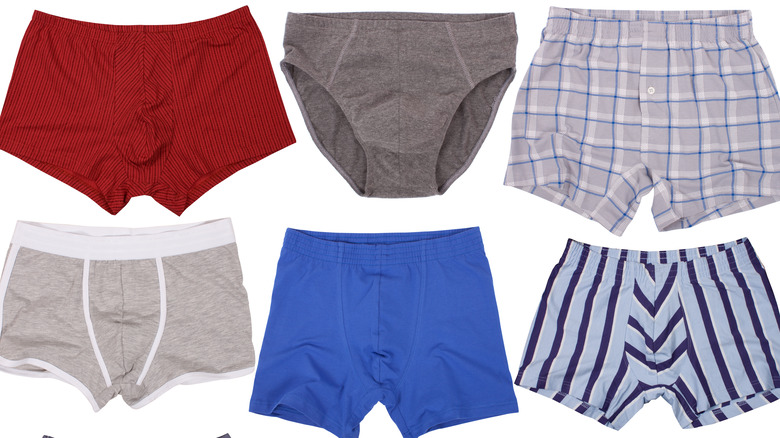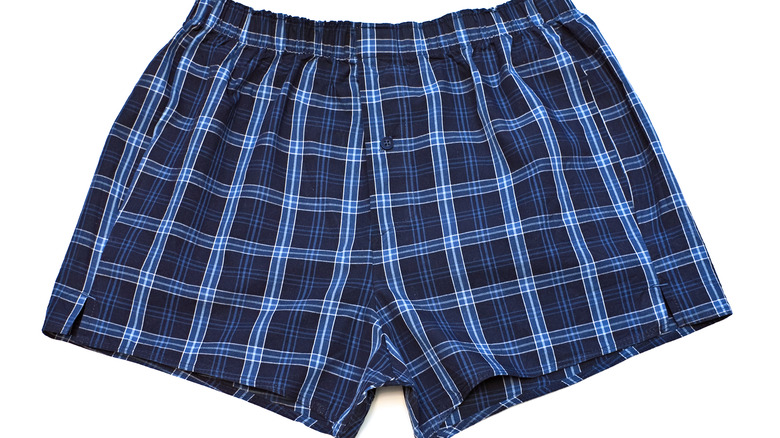Boxers Vs Briefs: Which One Is Better For Men's Health?
The debate over boxers or briefs has been around for some time. Each style of underwear has its own unique pros and cons. On the one hand, briefs do not bunch up under clothing, and they offer support during physical activities. Boxers, however, are more comfortable and are great for sleeping. Out of the two, it appears boxers may be the better choice — especially when it comes to reproductive health.
Because briefs are tighter than boxers, they tend to squeeze the scrotum against the body. When the scrotum is in this position, it raises the temperature of the testes. According to reproductive endocrinologist Celia E. Dominguez, temperature is important when it comes to fertility, as keeping the testes cooler than the body's core temperature yields a higher sperm count (via WebMD). She further explains, saying that this is why the scrotum is located outside the body. For this reason, men concerned about sperm health should also avoid spending a lot of time in hot tubs or saunas.
Boxers are better for higher sperm counts
Science backs up the notion that boxers are better for fertility. A 2018 Harvard study analyzed 656 men seeking treatment at fertility centers. Among the men participating, 53% wore boxers and an analysis of their semen showed that these men had 25% more sperm and 17% more total sperm count than those who did not wear boxers (via Human Reproduction).
These findings also revealed that men wearing boxers had lower levels of the follicle stimulating hormone, or FSH, which is responsible for boosting the production of sperm. Men who did not wear boxers had higher counts of FSH, suggesting that tight underwear may cause the brain to compensate for low sperm production with the release of this hormone.
For men interested in fertility, it is also worth noting that it takes the body 10 to 11 weeks to produce sperm. Amos Grunebaum, of the New York Hospital-Cornell Weill Medical College, advised men to remember that any damage to sperm can affect fertility for weeks (via WebMD).


